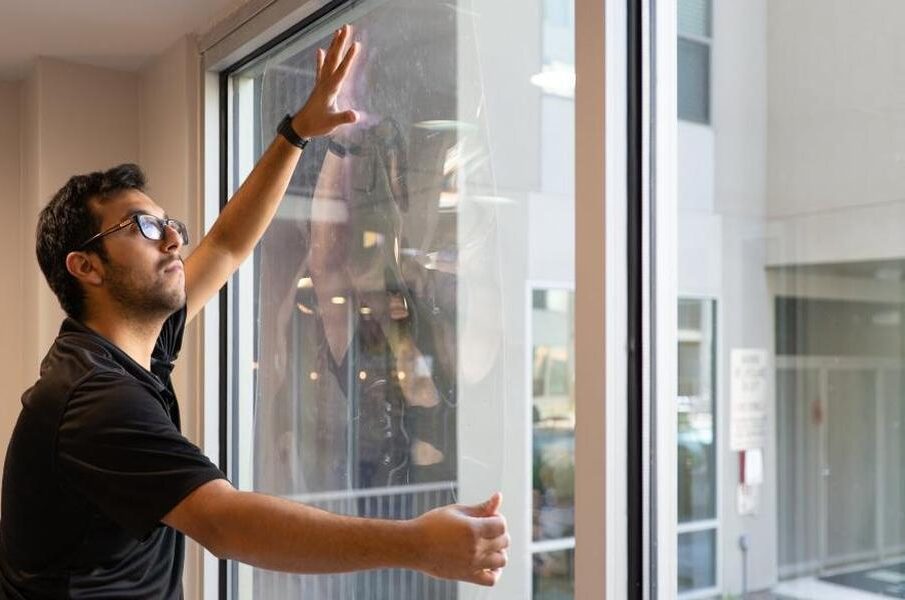Window Tint Solutions: A Cost-Effective Way to Reduce Solar Heat Gain

Solar heat gain can significantly increase the temperature of your home or office, leading to higher air conditioning costs and less comfortable living and working conditions. One cost-effective solution to this problem is the use of window tints. In this blog post, we’ll delve into how window tint solutions can help reduce solar heat gain and provide other benefits as well.
Understanding Solar Heat Gain
Solar heat gain refers to the increase in temperature in a space caused by sunlight. When sunlight enters a room through the windows, it heats up the air and objects in the room. While this can be beneficial in winter, it can make your home or office uncomfortably hot in the summer, increasing your reliance on air conditioning and leading to higher energy costs.
How Window Tint Solutions Can Help
Window tints are thin layers of film that can be applied to the inside of your windows. They work by reflecting and absorbing a portion of the sunlight, preventing it from entering the room. Here’s how they can help reduce solar heat gain:
Maintaining Natural Light and Views
One common concern when considering window treatments is the potential loss of natural light and outside views. With window tint, you can have the best of both worlds. High-quality tints allow plenty of natural light to filter through while still blocking harmful UV rays and excessive heat. Additionally, you can choose from a variety of tint shades and levels of darkness to maintain your desired level of privacy and outside visibility.
Protection from Harmful UV Rays
The sun’s UV rays can cause fading and damage to your interior furnishings, including furniture, carpets, and artwork. Tint solutions offer a valuable layer of protection against these harmful rays, extending the lifespan and vibrancy of your belongings. By filtering out up to 99% of UV rays, window tints help preserve your investments and keep your interior looking new for longer.
Heat Rejection & Glare Reduction
High-quality window tints can reject up to 80% of solar heat. They do this by reflecting the sun’s infrared rays, which are primarily responsible for heat. This results in a cooler and more comfortable indoor environment. Tint solutions can also decrease glare by reducing the amount of sunlight that enters the room, making it easier to see screens and reducing eye strain.
Additional Benefits of Window Tint Solutions
While the primary benefit of window tints is their ability to reduce solar heat gain, they offer several other advantages:
Eco-Friendly Benefits
Window tinting not only benefit your pocket but also the environment. By reducing the reliance on air conditioning, you are lowering your carbon footprint. Air conditioners consume large amounts of electricity from fossil fuel-based power plants, contributing to greenhouse gas emissions. By utilizing window tints to reduce solar heat gain, you indirectly decrease the demand for cooling and contribute to a more sustainable future.
Versatility and Aesthetics
Window tinting solutions are available in various types and designs, catering to different preferences and needs. From reflective and mirrored tints to frosted and decorative options, there is a tint to complement any architectural style or design scheme. Enhancing your building’s appearance and curb appeal while reaping the benefits of solar heat reduction is a win-win situation.
Cost-Effectiveness Solution
Investing in window tinting is cost-effective for combating solar heat gain. When compared to other methods like upgrading to energy-efficient windows or installing awnings and shades, window tints are a more budget-friendly alternative. The installation process is quick and straightforward, requiring minimal disruption to your daily routine. Moreover, the cost savings don’t end with the initial investment. Tinting solutions can lead to significant energy savings over time, lowering your utility bills and providing a return on your investment by reducing the need for excessive air conditioning during hot months.
Choosing the Right Window Tint Solutions for Your Needs
When selecting window tinting solutions, there are several factors to consider:
Type of Tint: There are several types of window tints available, including dyed, metalized, carbon, and ceramic, each with its own strengths and weaknesses.
Tint Percentage: The tint percentage refers to the amount of light the tint allows to pass through. The lower the percentage, the darker the tint.
Professional Installation: For best results, it’s recommended to have your window tints installed by professionals. They have the necessary skills and tools to apply the tints smoothly and without bubbles.
The Bottomline:
As solar heat gain continues to impact our indoor comfort and energy costs, finding an effective and economical solution becomes crucial. Window tint solutions offer a cost-effective way to reduce solar heat gain, providing numerous benefits such as energy savings, environmental preservation, UV protection, and aesthetics. By investing in window tinting solutions for your residential or commercial space, you can create a cooler, more comfortable environment while contributing to a greener and more sustainable future. So, why endure sweltering indoor temperatures when a simple and efficient solution is just a window tint away?

















